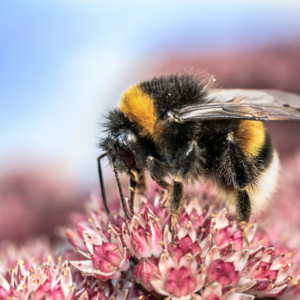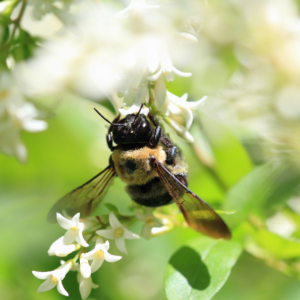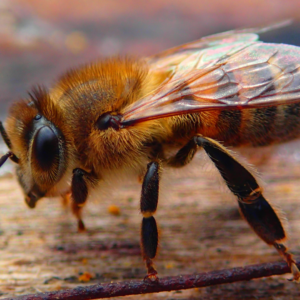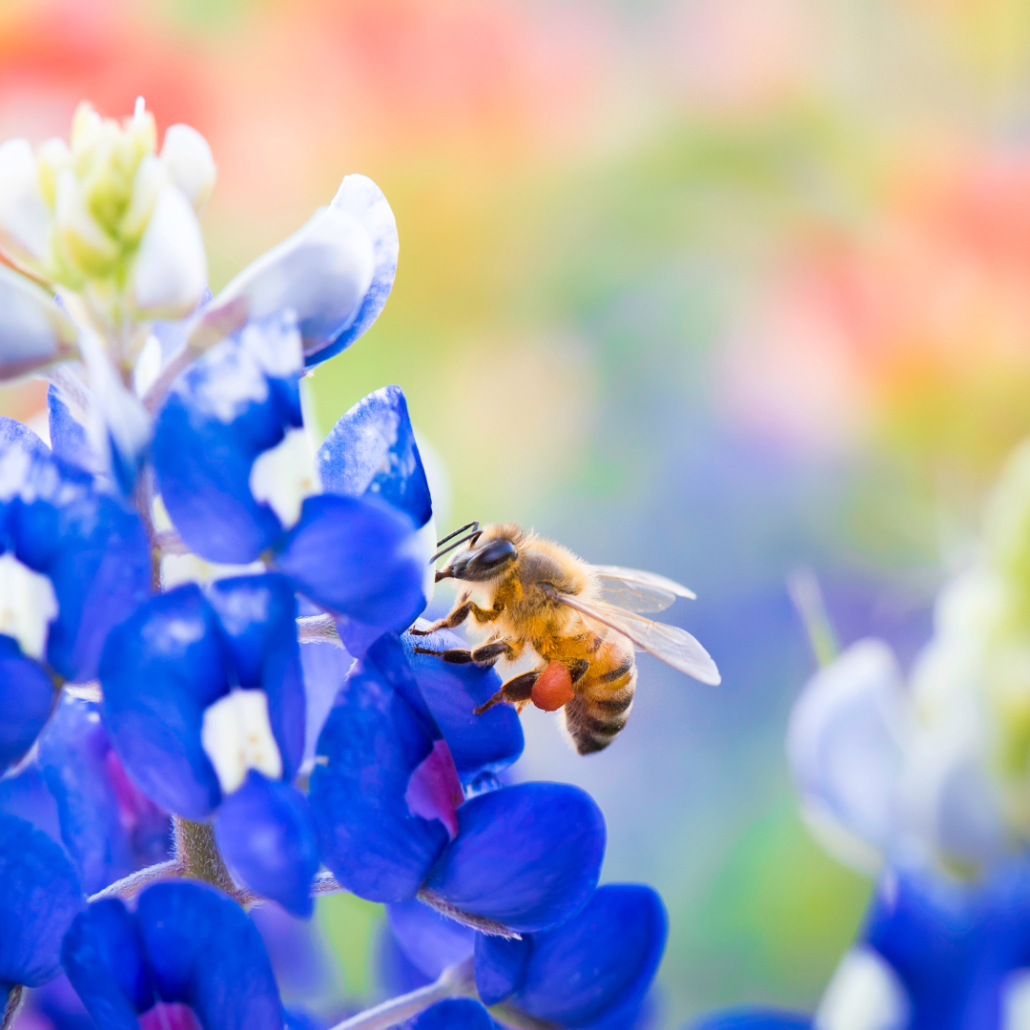Don’t bumble about with bee identification this summer, we can help you tell a Honeybee from a Mason bee at a stroke.
More than 250 different Bees
The UK is home to more than 250 species of bee – so if you see a couple buzzing around your garden this week doesn’t automatically assume they are one and the same. Know your bees with our guide to tell apart ten of the most common species.
Bumblebees
First, the Bumblebee. Not a simple starting point as there are, in fact, no less than 24 species of the Bumblebee in the UK. They are all a social crowd, so chances are two spotted at the same time will be from the same hive, which can easily be shared by hundreds of their sisters (the bees you see out scouting for pollen are the female). If your visitor has a ginger thorax, black abdomen and white tail she’s a Tree bumblebee. They like rhododendrons and brambles and will often create a hive from an old nesting box.
If your bee has a red tail, most likely it is – well – the Red-tailed bumble! Easy. They are a frequent visitor to urban gardens, but also love wildflower grassland and thistles. If it has a red tail and a weak yellow tummy it’s the male. 
Another easy one to remember has a white tip at the end of the abdomen, and yes, you guessed right, it’s called the White-tailed bumble. They also have a bright yellow collar and a yellow abdomen and are common across the UK. But if you recognise that description – but see an orange tail rather than a white tail – then you may be looking at the Carder bee. It has a similar all-brown body; but can be gingery or sandy brown. Gorse is their favourite plant to hover around, but Carder bees are found everywhere from arable land to urban gardens.
Mason, Mining and More
If you spot your bee by the front door, and it’s on its own, it’s probably a Mason bee. They’re happiest living alone in a small cavity in your wall or a nearby fence post or tree. As their name also implies, these hardy bees are stocky, and their large powerful jaws are also a distinguishing feature.
The mason bee you are most likely to see is actually called the Red mason bee. Despite the name, their head is black, they have a brown thorax, rather than red, and their abdomen is orange! Females also look noticeably ‘fluffy’.
Another candidate if yo u spot a lonesome-looking solitary bee on your lawn is a Mining bee. If it’s close in size to a honeybee and ginger in colour with a black face, then it’s a Tawny mining bee. But if it is really quite indistinguishable in colour, then it’s the Ashy mining bee – which stands out among bees by having no distinguishing colourful stripe on its abdomen or tail. It’s also the one you are most likely to see if you’re on or near a moor or heathland.
u spot a lonesome-looking solitary bee on your lawn is a Mining bee. If it’s close in size to a honeybee and ginger in colour with a black face, then it’s a Tawny mining bee. But if it is really quite indistinguishable in colour, then it’s the Ashy mining bee – which stands out among bees by having no distinguishing colourful stripe on its abdomen or tail. It’s also the one you are most likely to see if you’re on or near a moor or heathland.
Honey Bees
Finally, everyone’s favourite is the Honeybee, with its sandy thorax, black abdomen and golden-amber  bands. Honeybees in the UK have been bred for centuries so any you see are unlikely to be truly ‘wild’: any you see will most likely have travelled to your garden from a hive kept relatively local to you by an apiarist. Honeybees are the real ‘party’ animals among bees, living in colonies of up to 20,000 fellow workers and a single Queen.
bands. Honeybees in the UK have been bred for centuries so any you see are unlikely to be truly ‘wild’: any you see will most likely have travelled to your garden from a hive kept relatively local to you by an apiarist. Honeybees are the real ‘party’ animals among bees, living in colonies of up to 20,000 fellow workers and a single Queen.

